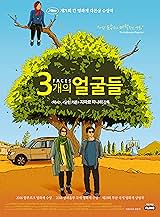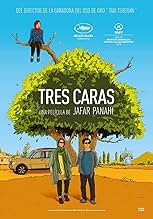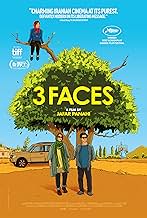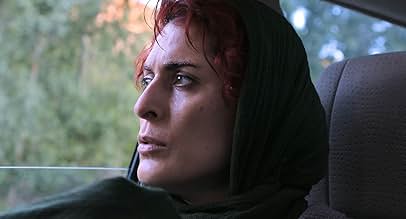"3 Faces" (2018 release from Iran; 100 min.) brings the story of Behnaz Jafari, a popular Iranian actress (and playing herself in this film). As the movie opens, a teenage girl posts an Instagram addressed to Jafari, where she seemingly hangs herself, distraught at the fact that her family won't let her study at an art school in Tehran. Jafari and a friend (director Panahi, playing himself) decide to searches for the girl... At this point we're 10 min. into the movie but to tell you more of the plot would spoil your viewing experience, you'll just have to see for yourself how it all plays out.
Couple of comments: this is the latest movie from writer-director Jafar Panahi, who in 2010 was banned by the Iranian authorities from making any more movies. Panahi's excellent 2011 movie "This Is Not a Film" was the first to be made during that ban, and "3 Faces" is the 4th. Working on a micro-budget and at great personal risk, Panahi and his crew nevertheless manage to brings us a riveting film about what life in rural Iran is really like., and the cost in terms of the human condition. In other words, this is the perfect opposite of the latest Marvel superhero movie. Given the plot-heavy nature of the movie, I can't say much more.
"3 Faces" premiered at this year's Cannes film festival to universal acclaim, and Panahi won (in absentia, of course) the festival's Best Screenplay award. I'd say the chances of this movie getting an Oscar nomination for Best Foreign Language Movie are pretty good too. I happen to catch this film during a recent family visit in Belgium. The early evening screening where I saw this at in Antwerp, Belgium was not attended well (exactly 5 people, myself included). Regardless, if you are in the mood for a top notch foreign film that was made despite a ban on the director, I'd readily suggest you check this out, be it in the theater (if and when this reaches US theaters), on VOD, or eventually on DVD/Blu-ray, and draw your own conclusion.


























